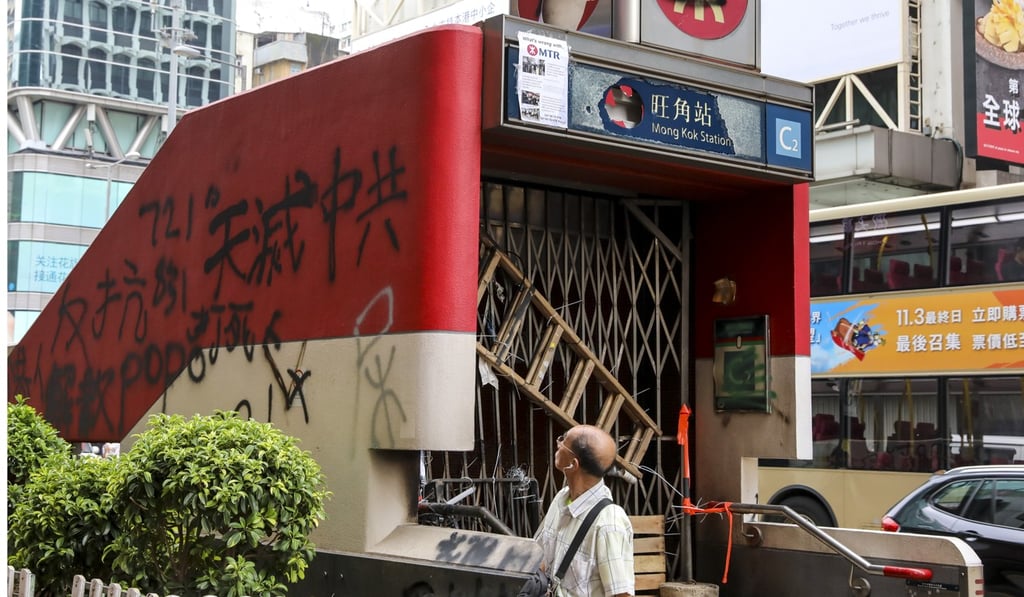Advertisement
Hong Kong protests: economy lost an estimated HK$2.8 billion over ‘golden week’, experts say
- Sectors such as retail, dining and hotels may have lost as much as HK$1.9 billion over three-day holiday weekend compared to last year
- Expert also estimates MTR Corp lost around HK$500 million over the weekend, citing vandalism and loss of ticket revenue
Reading Time:4 minutes
Why you can trust SCMP

Hong Kong’s economy lost at least HK$2.8 billion (US$356 million) over the past six days, according to local analysts and business leaders, with visitor numbers in free-fall and the city’s rail network crippled by rampaging anti-government protesters.
Experts who spoke to the Post on Monday said the damage to certain business sectors – such as retail, dining, transport and hotels – could exceed HK$1.9 billion over the three-day holiday weekend.
Each source also predicted that Hong Kong’s economy would only get worse as the protest crisis grinds on.
Advertisement
The head of a local brokerage firm estimated that the MTR Corporation lost around HK$500 million over the weekend, citing the damage caused by protesters and the loss of ticket revenue.

Advertisement
Chief Executive Carrie Lam Cheng Yuet-ngor on Friday issued a ban on masks at public assemblies by invoking a colonial-era emergency law not used in more than half a century.
Advertisement
Select Voice
Choose your listening speed
Get through articles 2x faster
1.25x
250 WPM
Slow
Average
Fast
1.25x